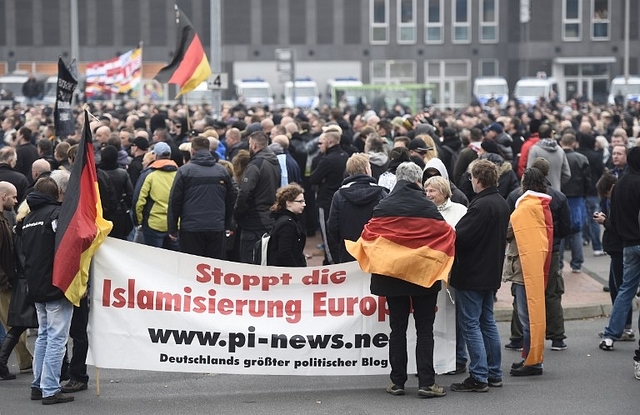
EU: Will The Refugees Assimilate?
As the number of refugees increase; a sense of disquiet is engulfing the EU public. Will the new refugees accept and internalize European values?
The refugee crisis besetting the European Union (EU) throws up a lot of interesting questions, the most perplexing of which is: what are the EU governments thinking? In the first two weeks of September, the world watched in bemused amazement as several member countries engaged in what can only be called competitive altruism.
The German government declared its willingness to take in 800,000 refugees, the Austrians followed with their own numbers, the French and English felt obliged to chime in too, though rather less generously.
The crisis of conscience seems to have charged up a vast number of EU officials, NGO personnel and ordinary citizens to stream through the television and Youtube channels expressing varying degrees of goodwill and sympathy. In some cases there were even expressions of remorse for everything ranging from past colonialism to present support for one side or the other in the ongoing war in Syria, Iraq and Afghanistan.
After all, Syria is still being bombed by some of the member governments, and Libya only a couple of years ago. Disappointingly, not much thought seems to have been given to the implications of what happened then and what is happening now.
At the outset, one must commend the ordinary European people who have been very welcoming – from Greece and Hungary to Sweden, in the northwest corner of Europe. In town after town, ordinary European citizens turned up with help in donations of food, drink and shelter.
Even in Greece, which no one will claim to be in the pink of economic health, people were generous with whatever they had and genuinely concerned about the welfare of the people turning up on the shores of Lesbos and other islands. Ad hoc humanitarian committees started organising shelter in various places across Europe.
Not all of these countries are in the best of economic shape. Jokes were rife among Greeks that perhaps they too should tear up their passports and head to Germany, where they would probably be paid with reasonable state-subsidised accommodation – certainly better than struggling to pay rent and make ends meet in Greece itself.
Something is odd about the large numbers of migrants and refugees though. Viewing of various news-clips suggests a more aggressive strain of refugee than one might have expected in the past. Many of the migrants appear to have a sense of entitlement, even, as if it is the duty of European countries to accept them regardless of their motive for entry. Numerous ad hoc demonstrations were summoned up at very short notice, demanding right of entry.
In many cases (in Hungary, and in France, too) offerings of food and water were thrown away or emptied on the ground for reasons unclear, as the local citizens looked on in amazement at these reactions. More seriously, in Lesbos, one of the scenic little Greek islands burdened with the misfortune of taking in a large number of boat-people, demonstrators rampaged through the streets; one bunch even wrote a slogan on a flattened cardboard box, asserting: “We will destroy the iland” (sic).
Undoubtedly, interesting questions are certainly racing through the minds of security managers throughout the European Union. By Sept. 16, the scenes on the Serbia-Hungary border, had turned positively alarming with stone-throwing, teargas shells, setting of fires, refugees climbing on rooftops – a veritable mini-intifada.
The other question that is being asked in private among the European populace, though not yet in public except by right-wing parties, is what are the prospects of integrating these people into the European value system, that is to say a secular-liberal system drawing upon an underpinning of the Christian faith.
The incoming flow of refugees and migrants is mainly Muslim. Judging by past experience, one must at least be healthily skeptical about the prospects. Observe the eastward flow of second and third generation European Muslims to join ISIS – i.e. into the very areas the migrants are fleeing from.
Such skepticism is being vigorously voiced by European right-wing parties and groups. It is backed up by a sort of mini-frenzy in the social media about the nature of the refugees – who of course are no means just from Middle Eastern war-zones. There are people from Nigeria, Iran, Bangladesh, etc. While the global broadcast media focuses on the plight of the migrants and refugees, one can sense disquiet brewing among the EU public.
It is clear that as the numbers increase, so will the opposition among the poorer segments of the EU populations – many who fear that their own eligibility for state-support will decline. There are already instances where new refugees are moving up the list for state-subsidised housing, while locals who have been on it for years face the risk of being pushed back down the line.
So, back to the question of whether is this an EU-wide crisis of conscience or a collapse of common sense? It looks like a bit of both, but facts on the ground suggest much more of the latter. One hopes this generation of refugees and migrants will appreciate what ordinary Europeans of goodwill are doing for them. The next generation almost certainly will not.